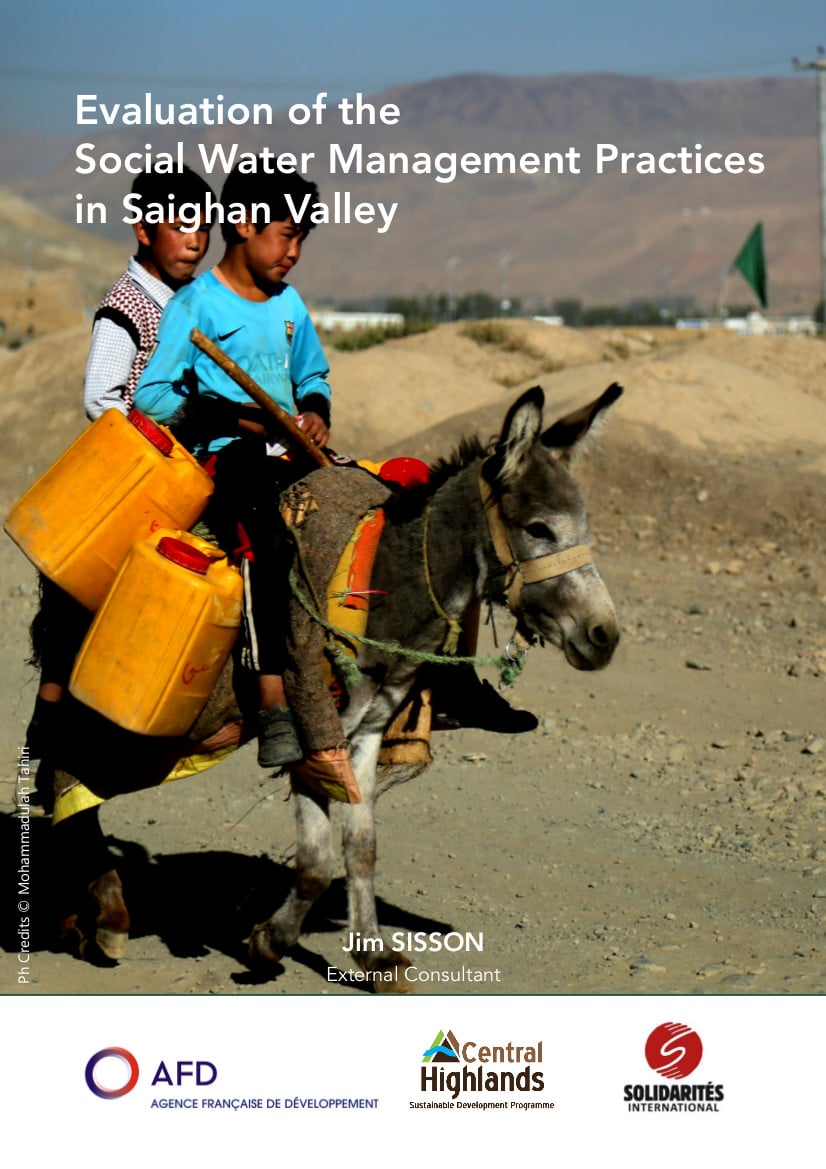Evaluation of the Social Water Management Practices in Saighan Valley, Afghanistan

This study is part of the Central Highlands Programme in Afghanistan. This programme, funded by the French Development Agency (AFD), is conducted by Geres, and implemented in consortium with MADERA and Solidarités International. The aim of this programme is to increase living standards and quality of life of mountainous people living in rural areas of the Central Highlands Region of Afghanistan through natural resources management and promotion of rural development.
The main focus of this study is on the means by which the communities along the Saighan River manage the water resource in a manner which is both efficient and sustainable. The Saighan Valley is noted for the lack of sufficient water resources to carry on agricultural activities in an effective manner.
There are four main ways in which irrigated agriculture can be carried on in the valley in a more sustainable manner :
- Increase the amount of available water by improving physical infrastructure;
- Identify high value crops with lower water requirements;
- Use different agronomic methods to improve the water utilization of crops;
- Improve the social water management of the existing resource, which is the focus of this report, to ensure more equitable management.
The primary purpose of the study was to investigate the way in which both the village communities and the valley community managed the water resource. It was concluded that while the resource available was generally well managed by each individual community, there has been no attempt to manage the resource on a valley (or catchment) basis. The only solution is to introduce a valley wide water management system whereby each community irrigation area is allocated a specific proportion of the available water.
Information
- Edition: AFD
- Author: Jim Sisson
- Year: 2017
- English: Anglais
- Pages: 55
DOWNLOAD
WOULD YOU LIKE TO TAKE ACTION
AND SUPPORT WHAT WE DO?
Tell us who you are and find your means of action.
